How to Promote Travel Agency Website with SEO: Dominating Search Results
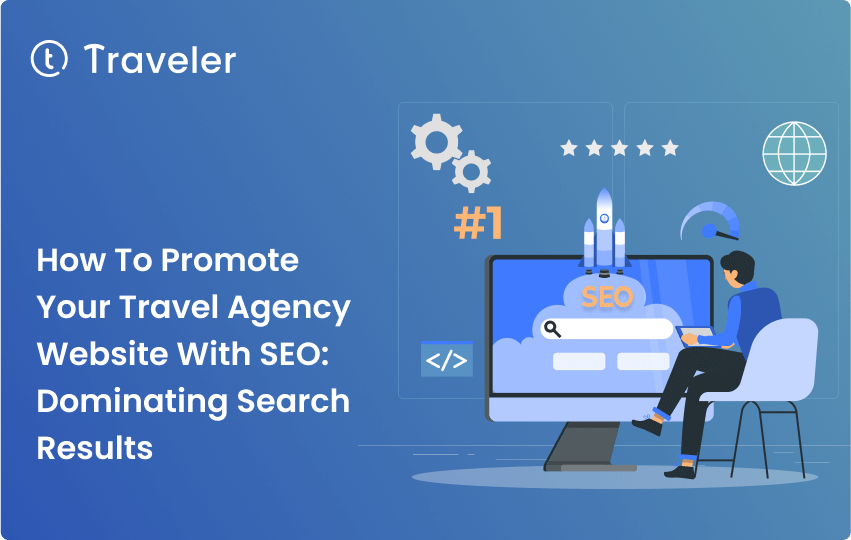
Travel SEO is the key to online success for your travel agency’s website. In this digital age, it’s important to have a strong online presence if you want to attract new customers.
According to Statista, the global revenue from online travel will reach $865B in 2021, up from $396B in 2020. And by 2023, it’s expected to reach $855 billion U.S. dollars. As a travel agency, you can take advantage of this huge market by making it easy for travelers to book their vacations through your company and get a piece of the pie.
And with the right strategy, you can dominate search engine rankings and make your agency a valuable resource. Whether you’re a travel agent, tour operator, or travel blogger, this is your chance to stay ahead of the competition and get amazing results. Read on to discover the most important facts, the top 5 tips to promote travel agency website with SEO, and how your travel business can start using it now.
Let’s jump in
What is Travel SEO?

Travel SEO is the “art” of getting your travel agency website to the top of search engine rankings. It’s about understanding what your customers really want and using strategic keyword to bring them right to your door. With a combination of keyword research, creating content that is optimized for search engines, building links, and other expert techniques, you can get more people to visit your website and see how well it does in search engines soar.
Travel SEO is the key to unlocking your website’s full potential and staying at the top of your target audience’s mind in a world where the travel industry is always changing and is very competitive. It’s a powerful content marketing tool that every travel business should have.
Why Do Tour Operators Need SEO?
Only the strongest and most flexible businesses can make it in the travel industry, which is very competitive. With how fast things are changing, it’s no longer enough to have just any travel site.
And the best way for a travel business to stand out in a world with so much competition is to make a website that is both resourceful and useful, with the helpful travel information that today’s travelers wordpress theme for tour operator are looking for.
So, without further ado, here are 5 SEO techniques that you can’t skip if you want your travel agency to stay in your customers’ minds.
Keyword Research
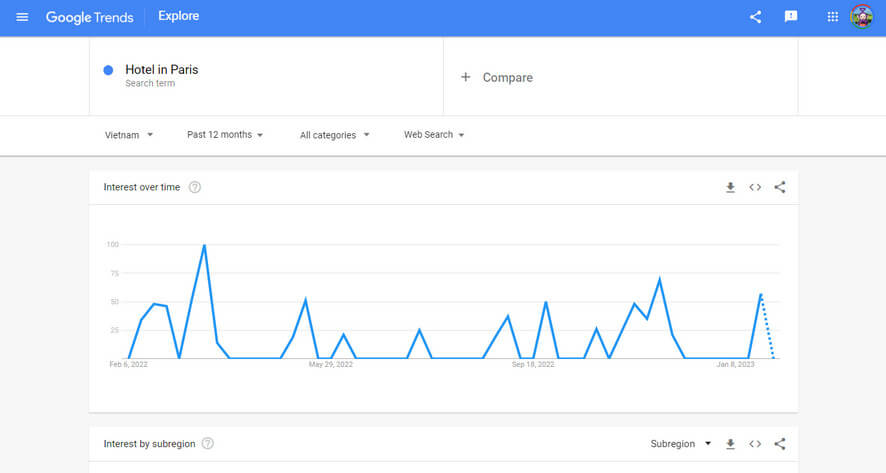
Understanding what a “keyword phrase” is the most important part of SEO. When someone uses a search engine like Google to find something, they type in a string of words. In the world of SEO, this is called a “keyword” or “keyword phrase.”
As a tour operator entering the exciting world of SEO, make sure you know what you want to accomplish and let your love of travel guide you. And yes, the first step is to pick keywords that show off your tours and summarize what travel is all about.
Use the power of different tools and find the right keywords to make your idea come to life. Also, don’t forget to check out the competition for travel keywords to stay ahead of the game. You can use Google’s free and useful tools, like Google Trends, Google’s Keyword Planner, SEMRush, Ahrefs, Ubersuggest, Moz, and KWFinder, to get the most out of this method.
On-Page Optimization
Invest in creating compelling and effective landing pages
Your website will only do well if your landing pages are strong and easy to understand. These internal pages are very important for answering your customers’ questions, giving them the information they need, and getting them to do something.
Landing pages are a key step in the process of turning a visitor into a customer. A well-made landing page that is meant to persuade and convince can make all the difference. It can:
- Leave a lasting and positive first impression
- Spark leads and conversions
- Establish credibility and trust
- Raise brand recognition and awareness.
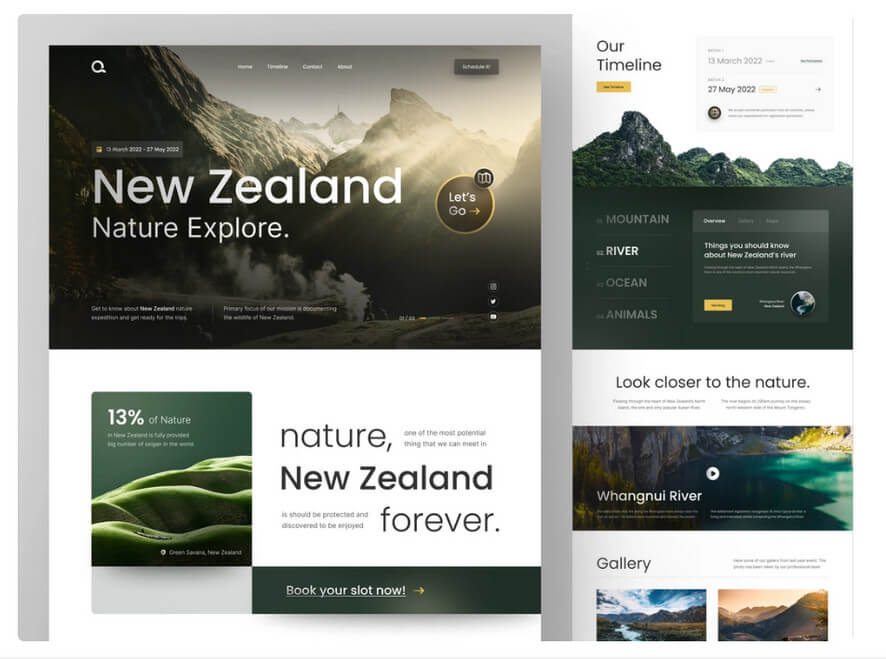
Optimize page titles and descriptions using targeted keywords
Make your keywords stand out by putting them in strategic places on your page. You can put them once in the title of your page and again in the meta description.
Even though the meta description doesn’t affect search engine rankings as much as it used to, it’s still important to include your keywords for a smooth user experience.
Also, your page title should have no more than 55 characters, and your meta description should have no more than 150 characters. With Yoast and Rankmath, it’s never been easier to change these things. So, if you want to optimize your keywords on WordPress, make sure you have one of these tools on hand.
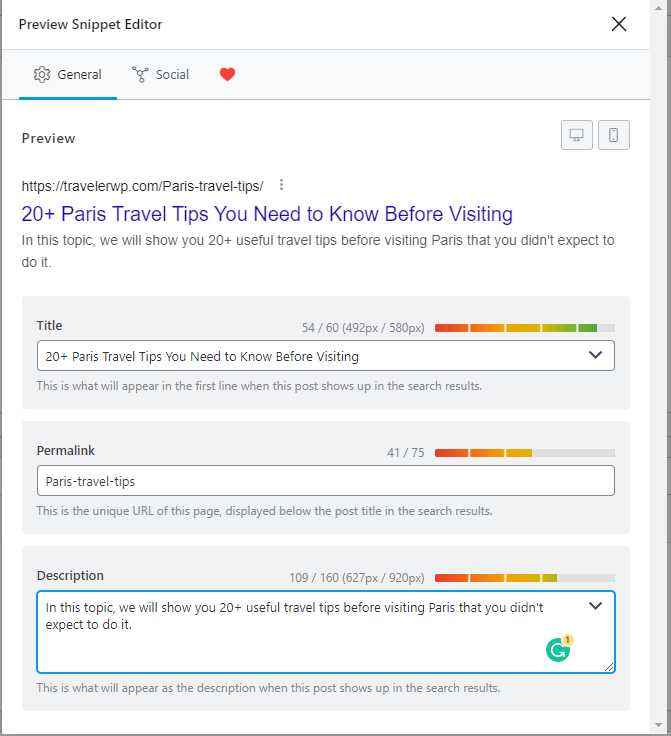
Also, you can make your keywords even more powerful by putting them in your H1 heading and any other headings you need. Start your content with the keywords in the first paragraph, and then use them in two or three different ways throughout the rest of your writing.
But keep in mind that the main goal of a travel agency’s website is to give visitors content that is useful and interesting.
Another important thing to remember is that once you find the right words to attract your audience, you should put them on all of your pages, old and new, to get the best results.
Look for keywords that get a lot of searches, so you don’t have to compete with big companies in your field. Instead of the short-tail keywords that have a lot of competition, go for the long-tail keywords that have less competition.
Long-tail keywords like “Paris travel packages for couples” are not only easier to rank for, but they also bring in more targeted traffic than more general keywords like “travel packages.”
Include high-quality, relevant images and videos.
A travel website isn’t finished if it doesn’t have stunning photos and videos. Perfectly captured moments of time that make people want to travel and encourage potential customers to pack their bags and go on an adventure. These pictures and videos aren’t just extras—they’re what a travel agency or operator’s website is all about.
Imagine how much more impact they can have if they are also optimized for search engines. Even images and videos can be optimized for search engines. This improves the user experience and makes the site more appealing to both humans and search engines. In every way, it’s a win-win situation.
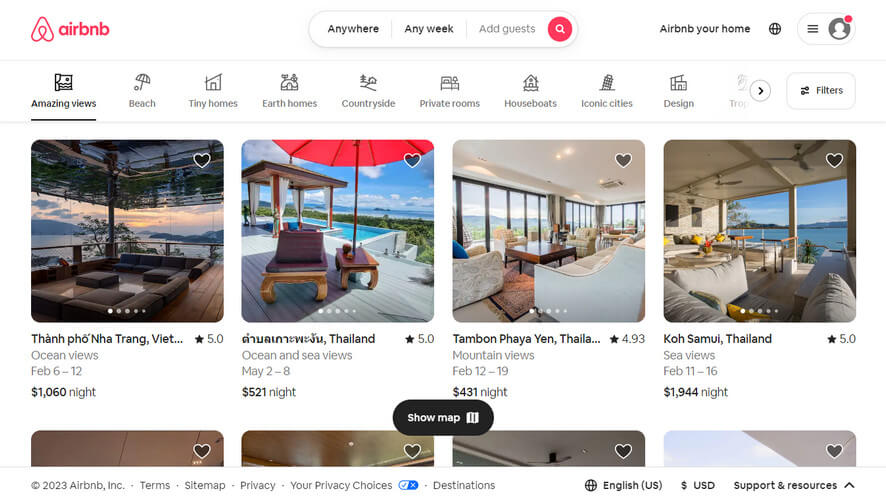
Ensure that your website is mobile-friendly
Don’t let your website fall behind in the digital world of today! Too often, users get frustrated when they try to use a site made for a desktop computer on their phones. Over half of all internet traffic comes from mobile devices, so if your website isn’t mobile-friendly, you could lose a big chunk of your audience.
Not to mention, the travel industry is very competitive and there are a lot of options, which is why your travel agency needs to make sure your site stands out by being easy to use. With PWA or RWA, you can make a responsive website that works well on both desktop and mobile devices.
After adding PWA or RWA to your website, you can put it to the test with Google’s mobile-friendly tool to make sure it works best on mobile devices.
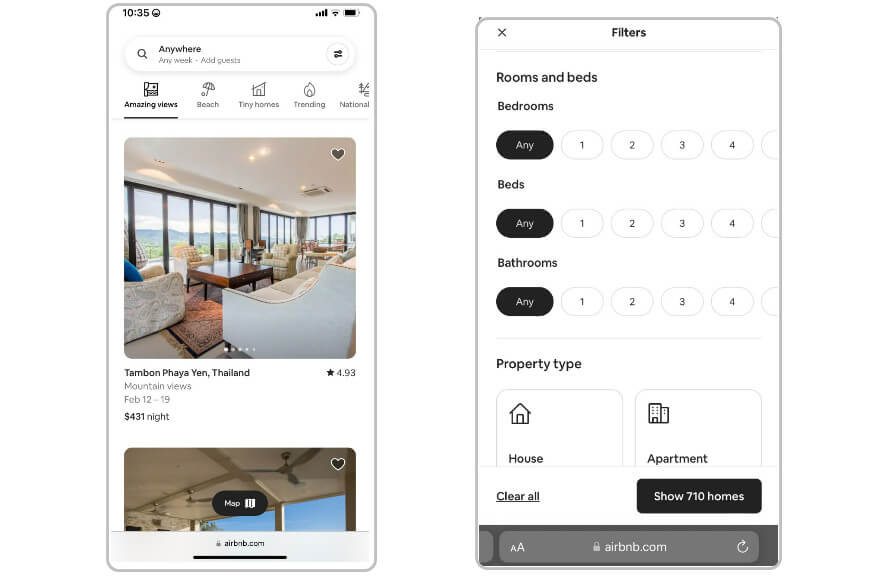
Local SEO
We all know that SEO is important for any travel business with a website, but it is especially important for businesses with a physical location.
A lot of online searches are for local information, so it’s important to make sure your website comes up when someone in your area searches for related terms.
One of the best ways to make sure people in your area can find your website is to list it on Google My Business. When you list your business on GMB, your website will show up when people in your area search for your business or related terms.
Here’s how this might look on your own travel company’s website:
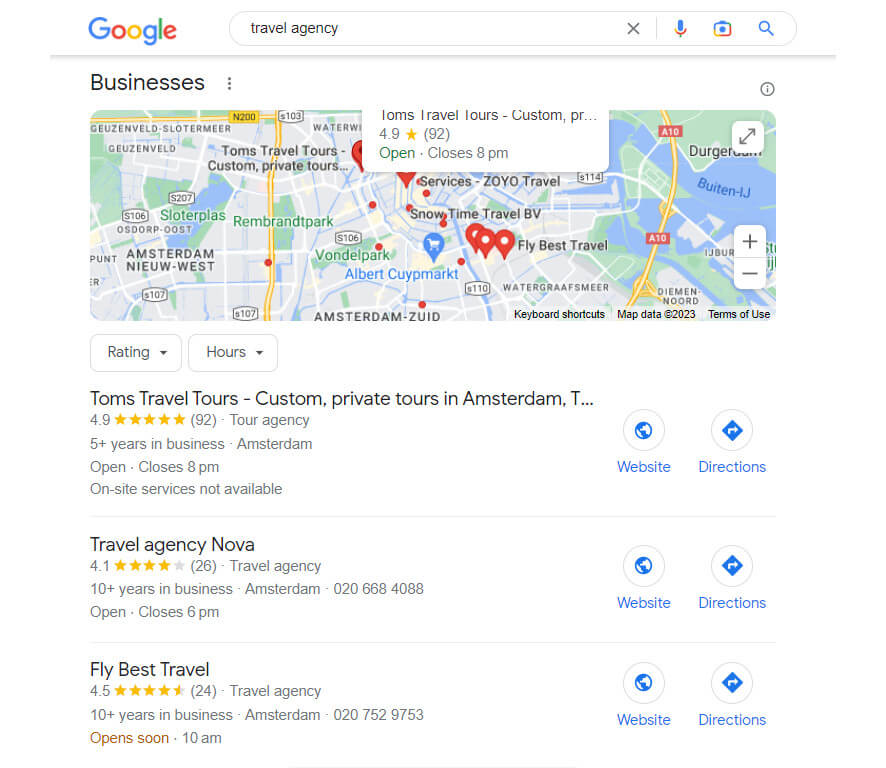
After all of that, setting up a Google My Business account is the most important first step to local SEO success. To really stand out, you need to do more than just be “on the map.” For example, you could optimize your website for voice search, keep your local content up-to-date, find and use location-based keywords, and use location pages on your site.
These strategies work together to make sure that people can find your business in local searches and directories. Don’t let all your hard work go to waste. With a good local SEO strategy, put your business on the map and in front of the people who matter most.
Off-Page Optimization
Did you know that you can improve your travel website’s SEO with off-page methods? Off-page SEO is anything you do outside of your travel website to help it rank higher in Google’s search results. This means that you can improve your site’s SEO in many ways, even if you’re not a web developer.
These SEO tips for travel agents can also be used by travel bloggers and other businesses that deal with travel and have a website. So, if you want to improve your site’s ranking, make sure you check out this important part!
Build high-quality backlinks from reputable websites
Keep in mind that the end goal is to get high-quality backlinks from websites with better reputations than your own. This will help your website rank higher and be seen more. To do this, you can look for websites that are related to your niche and where the links fit in naturally.
You can also make high-quality content that other sites will want to link to, or you can contact the owners of other sites and offer to write a guest blog or testimonial for them.
Stay away from websites that aren’t relevant, like those in the fashion industry.

Use social media to promote your travel website and engage with potential customers.
You can’t say enough about how important social media is for SEO. With billions of people using Instagram, Facebook, Twitter, Reddit, and other sites every day, your travel website could be missing out on a lot of free traffic.
Think of social media as a virtual search engine where people ask and answer questions on a daily basis. Even though it’s not a direct ranking factor for Google, being on these platforms can help people find your travel website a lot.
Also, travel is a very visual niche, and if you have a strong social media presence, potential visitors can see what your site looks like and how it works. Don’t let your website fall behind. Instead, use the power of social media to make your online presence even stronger.
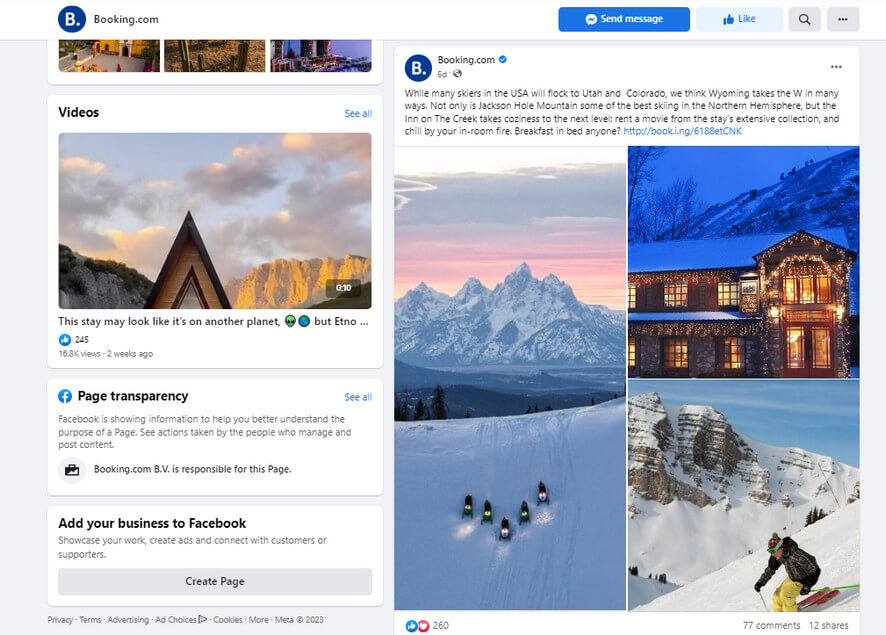
Tracking and Measuring Results

The success of your online presence depends on how well you measure and track your search performance. By taking the time to look at your website’s traffic and conversion data, you can make SEO decisions that will have a big impact.
Google Analytics is a useful tool that can tell you a lot about your website’s performance, such as how many people visit it, how they use it, and how many of them buy something. Using this information can help you make smart SEO decisions that get real results and make your site more visible online.
And if you have more money to spend, SEMrush is another great tool that can take your SEO to the next level. With its advanced features and capabilities, you can learn more about how your website is doing and about how your competitors are doing business.
SEMrush is a powerful tool that can help you reach your goals, whether you want to improve your rankings, get more traffic, or increase your conversion rates.
Final Takeaways
In conclusion, promoting your travel agency website with SEO is a highly effective way to increase visibility and drive traffic to your site. By following the steps involved in SEO we mentioned above, such as keyword research, on/off-page optimization, link building, local SEO, and tracking your performance, you can improve your website’s ranking and attract more potential customers.
Moreover, it is important to remember that SEO is not a one-time effort but rather an ongoing process. As search engines continue to update their algorithms and as user behavior changes, it is crucial to keep up with the latest trends and make adjustments to your strategy accordingly.
Thanks for reading! We hope that you found this blog post helpful and informative. If you are looking for an eCommerce company that can help you build an amazing WordPress Travel theme, please contact us anytime at Traveler. We would love to speak with you about your needs and how we can help you succeed!
